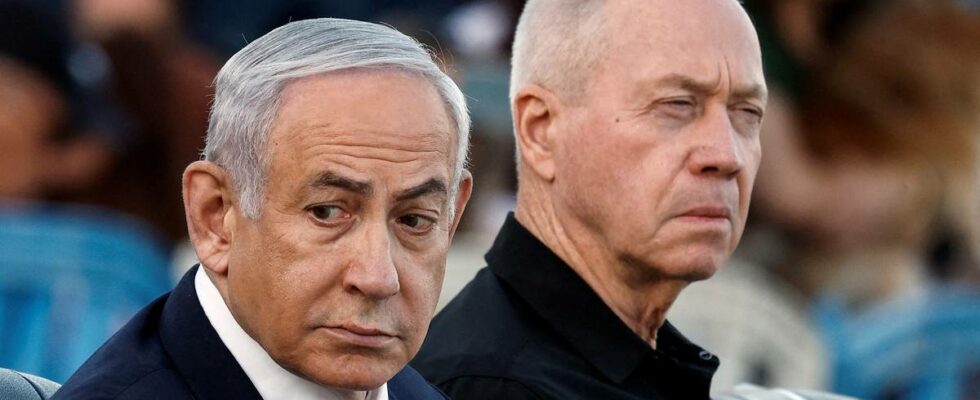This week, the International Criminal Court (ICC) issued arrest warrants for the first time for an ally of the United States and other Western countries. Israeli Prime Minister Benjamin Netanyahu and former Defense Minister Yoav Gallant are accused of war crimes and violations of human rights in the Gaza Strip. In theory, this means that Netanyahu can be arrested if he sets foot in one of the 124 countries that are part of the ICC. Previous arrest warrants have mainly been for Russian and African heads of state. The European countries have backed them, but this time the reactions are divided. Germany cannot give an answer as to whether they will arrest Netanyahu, should he travel there. Nor can Great Britain, France or the Czech Republic give a clear answer. Italy’s interior minister has said that they will arrest Netanyahu if he comes there, but that he believes the order is a mistake by the ICC. Other ministers in the government have said that Netanyahu will be warmly welcomed to Italy. Hungary has said that they will not follow the order. Prime Minister Viktor Orbán would rather invite Netanyahu to visit, he said on Friday. The United States, which is not a member of the ICC and is Israel’s most important ally, has flatly dismissed the charges. The US has previously sanctioned the ICC for investigations they disagreed with. Orban and Netanyahu in 2019. Photo: ARIEL SCHALIT / AFP Hamas leader Mohammed Deif is also indicted for war and human rights violations against Israelis, but it is unknown if he is alive. – Standing in the way of peace Yossi Mekelberg is professor of international relations, senior researcher at Chatham House, and columnist in Arab News. He believes the arrest warrant from the ICC brings more harm than good, and not because he doubts the basis for the indictment. – The most important thing should be to put an end to the killing, bring home the hostages, rebuild Gaza, and then take it to court, he says. Yossi Mekelberg is professor of international relations and senior researcher at Chatham House. Photo: Chatham House That the order divides the international community in the way it does, he believes stands in the way of this happening as quickly as possible. – Are we now in a better position to stop the killing or not? What I am afraid of is that the answer is no, he says. Instead, he thinks the Israeli prime minister is in a slightly better position, and that he and his allies will try to undermine the ICC and put more pressure on the prosecution. – Netanyahu flourishes under such divisions. “Us against the world” The ICC indictment is probably not the legal process that Netanyahu is most concerned about at the moment, believes Mekelberg. At the beginning of December, Netanyahu is scheduled to testify in the corruption case against him. Paradoxically, the arrest warrant can help him in that. Many Israelis feel that the world is against them. When around 1,200 people were killed in Hamas’ terrorist attack on 7 October, the world reacted with disgust and support for the Israelis. But it wasn’t long before the unison support burst. The war that Israel launched against the Gaza Strip in response has killed more than 40,000 Palestinians in just over 13 months and left the area in ruins. People queue to receive bread in Khan Younis, Gaza. Using violence as a weapon is one of the things Netanyahu has been indicted by the ICC for. Photo: EYAD BABA / AFP – Many Israelis see everything Israel does in Gaza as legitimate, because the wounds from 7 October are so deep. Netanyahu can use the arrest warrant to paint a picture of the whole of Israel being prosecuted now, he says. Netanyahu himself has called the ICC indictment anti-Semitic. Mekelberg pointed out that human rights violations are committed by many, many places in the world, without the ICC issuing arrest warrants. Many Israelis feel that Israel is treated differently. – Netanyahu is very good at exploiting the idea of ”us against the world”. There is a real risk that the right wing in Israel will be consolidated now, he believes. Can change international law Jo Stigen is a law professor at the University of Oslo, and an expert on international law. He chose to trust Chief Prosecutor Karim Khan in his assessment of the timing of the arrest warrant. – When he asks for an arrest warrant, he has assessed what effect such an order will actually have. It is about whether it would be appropriate to issue him, and timing is a factor there. It is a very difficult question, he says. Law professor Jo Stigen believes the arrest warrant for Benjamin Netanyahu could change international law. Photo: Christian Breilid – I see that one can argue that the order came too early, but one can also argue the other way. There are such serious crimes that are actually happening now, so if the ICC can contribute to curbing what is happening in Gaza, that will be an important point, Stigen elaborates. The fact that countries that are members of the ICC are now so divided on whether they want to follow the arrest warrant shows that this is also political, he believes. – From now on it will probably be more politics than law that drives the process forward. Many have believed that leaders of states that are not part of the ICC, such as Netanyahu, are basically immune from extradition to The Hague. But this may change with this order, because several countries are now deciding whether they want to arrest Netanyahu or not. – In this sense, it is an exciting time. States’ opinions help to shape international law, which is not actually written in stone, he says. Published 24.11.2024, at 21.18
ttn-69
The arrest warrant for Netanyahu divides the world – news Urix – Foreign news and documentaries

